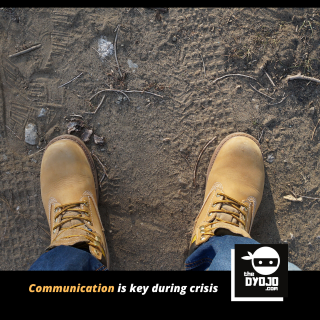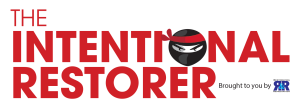Organizations that increase their communication and execution will thrive in spite of COVID-19. For most areas, even where stricter quarantine protocols are in place, construction is being considered as an “essential service”. Property restoration has typically been included in this designation as well. For those who are concerned about being excluded the Restoration Industry Association (RIA), Institute of Inspection Cleaning and Restoration Certification (IICRC) and National Air Duct Cleaners Association (NADCA) released a joint statement requesting Federal, State and Local Officials to consider our industries as essential businesses. Any contractor concerned about being included as “essential” should reach out to their local builders association and reference this joint statement. Crisis has a way of exposing the flaws in our existing processes. Organizations that were lax in their health and safety programs and continue to function with the mindset of “business as usual” will find themselves in peril. Many contractors and their employees are glad to continue working during this time as the economic impacts are a part of the overall picture of risk as we form responses to COVID-19. Many key voices in the industry have been rising to the occasion and doing their best to share sound information amongst peers. Some examples include:
Best practices for occupied worksitesWhile there are many unknowns with this novel coronavirus, in construction and property restoration the necessity of site health and safety is nothing new. From the AGC COVID-19 Job Site Practices, a few key additional precautions will help contractors to reduce the risk of exposure and potential spread of SARS-CoV-2. In addition to evaluating the specific hazards of each individual jobsite, some of these extra steps that should be practiced and documented when workers are entering occupied buildings and homes include:
Too often we take health and safety for grantedTo demonstrate that your company is committed to employee safety, a designated person in the company should be reviewing the ongoing release of information to update your organization's safety plan. Communication must increase during this time, and moving forward, rather than going radio silent and hoping it will all blow over. Hands on training should be performed and documented for everything which includes simple tasks such as washing hands, as well as pre, during and post work day cleaning protocols. Now is an important time to review your processes, which are often taken for granted, such as:
While many contractors are not engaging in COVID-19 clean up response, it is still important to understand what other service providers are learning about this issue. Whether you work for a restoration company that is considering coronavirus clean up or you are a GC that wants to keep you people safe, you will find value in the Three Tip Sheets provided by the Global Risk Advisory Council (GBAC), a division of ISSA.
Risk assessment and minimum measuresOn most construction sites, safety meetings are a daily occurence. One simple change during these unique times would be to have the supervisor sign everyone in rather than passing around a clipboard. Toolbox safety meetings should include discussion of and hands-on training for implementing the protocols mentioned above. Organizations will want to increase their documentation of communication, training and preventative measures, both to cover themselves from future scrutiny while also ensuring the information is reaching all team members. Worksite response should include partnering with the client to understand the potential for exposure. Asking questions such as, “Were there any persons, diagnosed or suspected, with COVID-19 who were at this site prior to our arrival?” A designated person should complete a pre-work evaluation of conditions and document these while creating a specific worksite plan which at minimum includes cleaning of touch points on a regular basis every day. The AGC recommends additional cleaning such as job site toilets to be disinfected by the provider at least twice a week, jobsite offices/trailers and break/lunchrooms to be cleaned at least twice per day. Now, more than ever, is a time for people in a position of leadership to step upLeaders need to lead. Crisis has a way of exposing the flaws in our systems. If you are resting on what you accomplished in the past or how you did things even a week ago, you aren’t leading and your company will struggle. With a little bit of thought, some clarity on expectations for this new world and a willingness to adapt as you all learn together, businesses can make some win-win scenarios that will keep talent as well as help them chart a path forward. Organizations should increase their level of communication with their team members during this time. Leaders should be on the front lines with their employees both to show them that we are all in this together as well as to have an ear open for strong ideas from the field that may come from sources that would otherwise be missed.
0 Comments
Leave a Reply. |
AuthorThoughts on personal and professional development. Jon Isaacson, The Intentional Restorer, is a contractor, author, and host of The DYOJO Podcast. The goal of The DYOJO is to help growth-minded restoration professionals shorten their DANG learning curve for personal and professional development. You can watch The DYOJO Podcast on YouTube on Thursdays or listen on your favorite podcast platform.
Archives
March 2023
Categories
All
<script type="text/javascript" src="//downloads.mailchimp.com/js/signup-forms/popup/unique-methods/embed.js" data-dojo-config="usePlainJson: true, isDebug: false"></script><script type="text/javascript">window.dojoRequire(["mojo/signup-forms/Loader"], function(L) { L.start({"baseUrl":"mc.us5.list-manage.com","uuid":"b9016446bd3c6a9f0bd835d4e","lid":"83282ffb9e","uniqueMethods":true}) })</script>
|
Jon Isaacson |
Connect. Collaborate. Conquer.
© COPYRIGHT 2015. ALL RIGHTS RESERVED.
|




 RSS Feed
RSS Feed